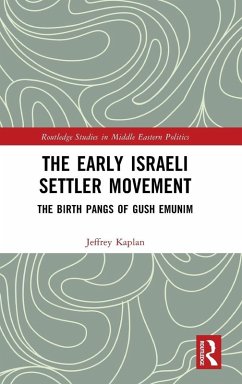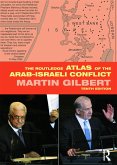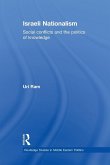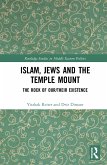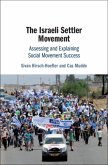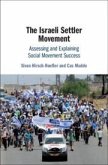This book examines the religious, intellectual and historical roots of the Israeli settlement movement through the lens of various strands of Zionism.
The book opens with a discussion of religious Zionism, especially through the lens of the teachings of Rabbi Avraham Isaac Kook and his son Zvi Yehuda Kook. The author notes the remarkable growth of a once marginal movement into a rapidly growing stream of Judaism, highlighting its key role in the settlement project before and after the Six Day War in 1967. This is supplemented by an analysis of the role of political Zionism as embodied by key figures such as Theodor Herzl and David Ben Gurion who adapted it into a governing ethos after Independence in 1948. This section concludes with a consideration of the writings of Ahad Ha'am and the role of cultural Zionism. The book then turns to an oral history of the 1967 war and the beginning of settlement which saw the emergence of key Gush founders. Finally, the book concludes with an extended discussion of Hebron from both Jewish and Palestinian perspectives, first in 1929, and then in 1968.
Offering new interpretations of Zionism as it impacts on the Israeli/Palestinian conflict, the book will appeal to students and researchers interested in Jewish studies, Palestinian history, and Middle Eastern politics.
The book opens with a discussion of religious Zionism, especially through the lens of the teachings of Rabbi Avraham Isaac Kook and his son Zvi Yehuda Kook. The author notes the remarkable growth of a once marginal movement into a rapidly growing stream of Judaism, highlighting its key role in the settlement project before and after the Six Day War in 1967. This is supplemented by an analysis of the role of political Zionism as embodied by key figures such as Theodor Herzl and David Ben Gurion who adapted it into a governing ethos after Independence in 1948. This section concludes with a consideration of the writings of Ahad Ha'am and the role of cultural Zionism. The book then turns to an oral history of the 1967 war and the beginning of settlement which saw the emergence of key Gush founders. Finally, the book concludes with an extended discussion of Hebron from both Jewish and Palestinian perspectives, first in 1929, and then in 1968.
Offering new interpretations of Zionism as it impacts on the Israeli/Palestinian conflict, the book will appeal to students and researchers interested in Jewish studies, Palestinian history, and Middle Eastern politics.

